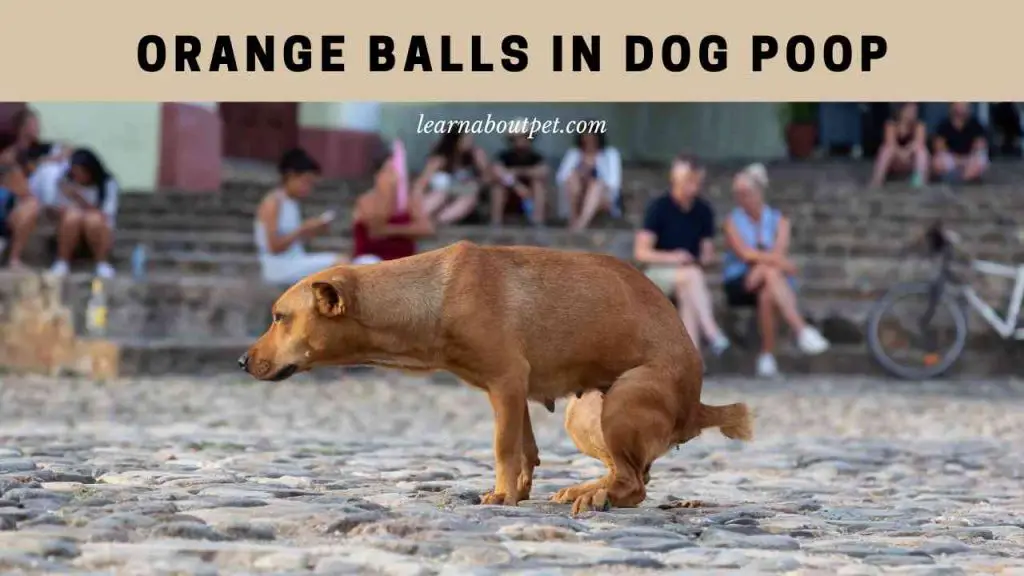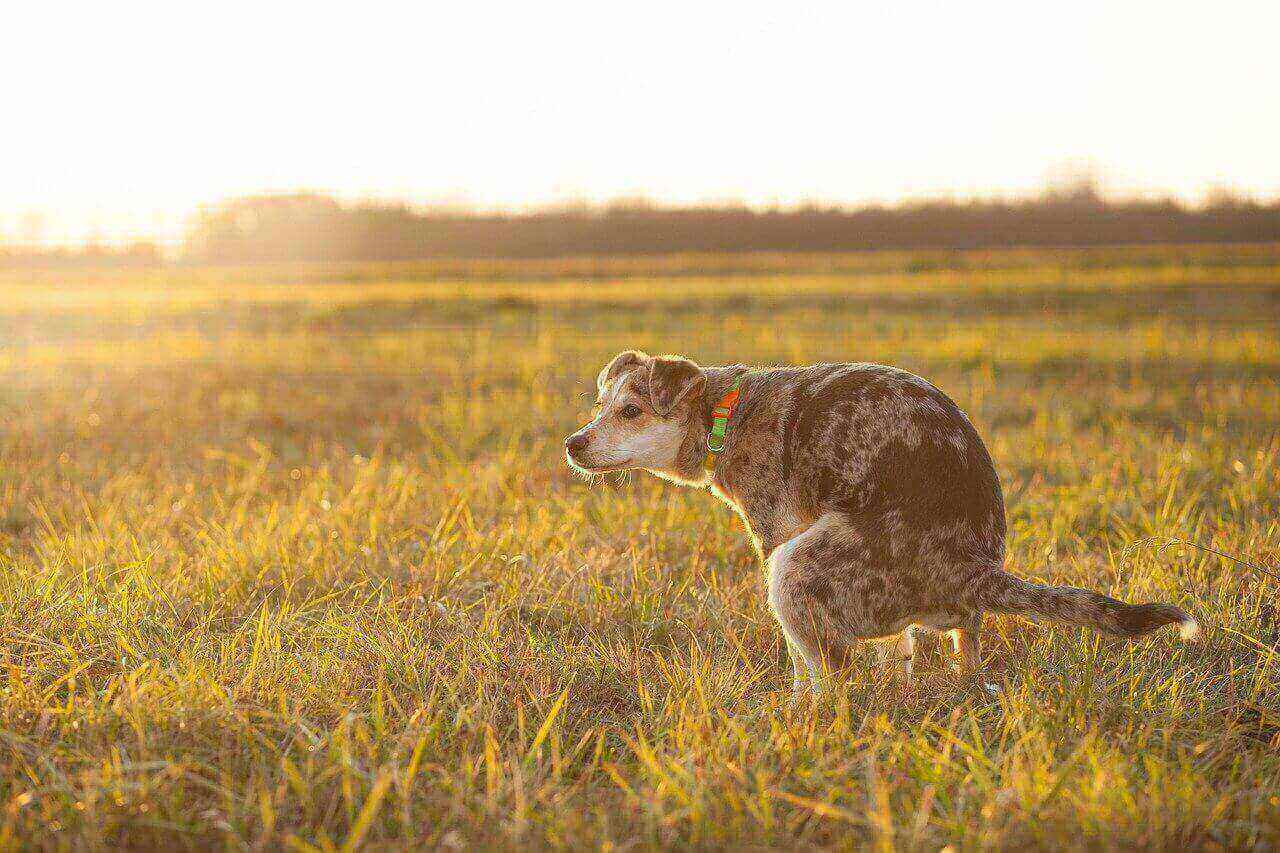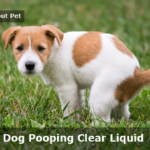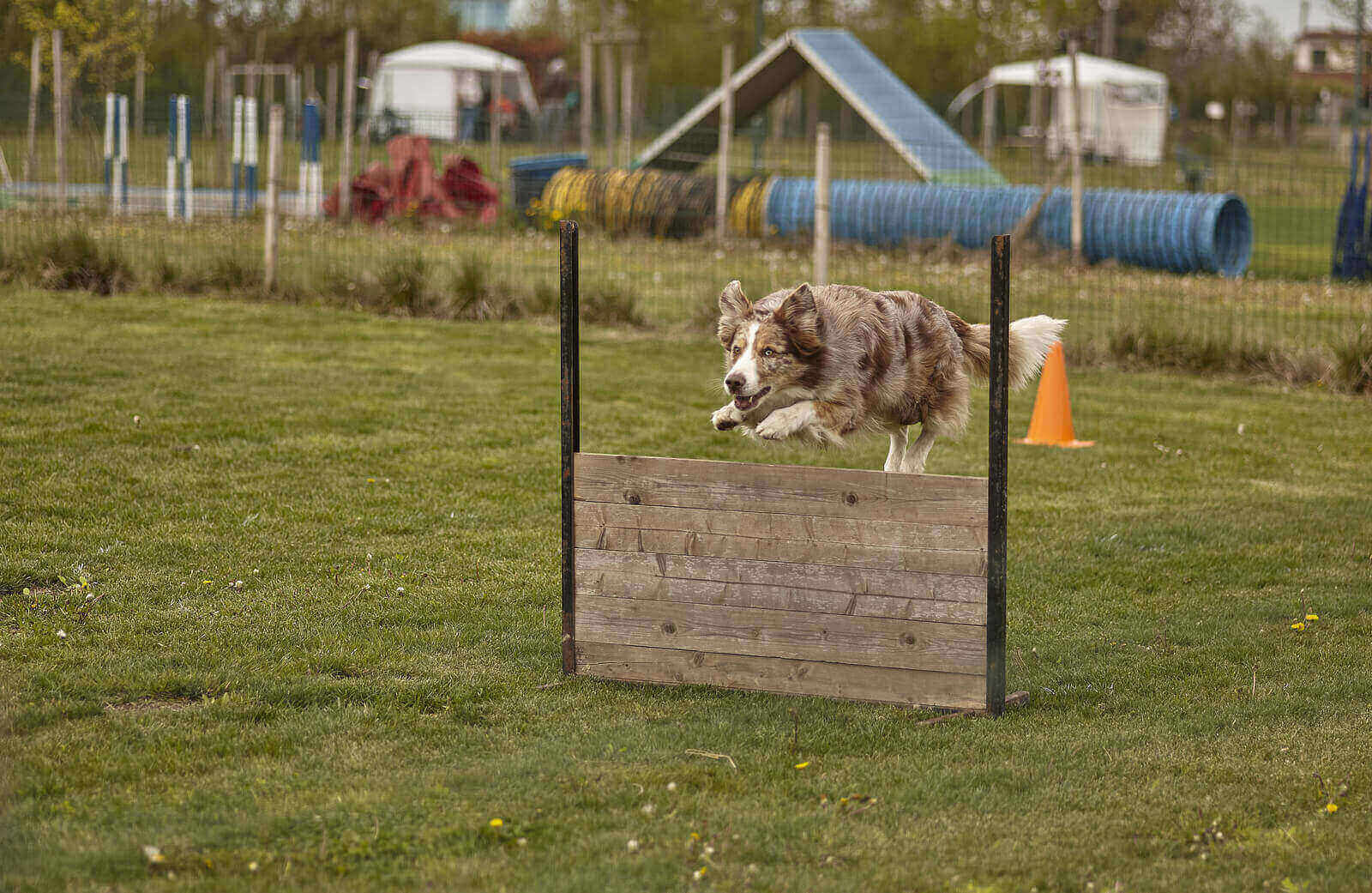Discovering that there are orange balls in your dog’s poop can cause a great deal of concern. You will certainly want to know what the orange balls in the dog’s poop are, what causes them and what you can do about them. This article has the answers.
Orange balls in dog poop may be indicative of the presence of tapeworm segments. They may also be a sign of the dog having eaten something that it was unable to digest properly, like bits of corn.
Much depends on whether the whole dog poop is orange, with orange balls in it. Or whether the whole dog poop is of another color, but with orange balls in it.

Upon noticing the orange balls in dog poop, it is best to take the dog to the vet urgently.
The vet will probably get a stool sample, on the basis of which they will be able to tell for sure the reason behind the orange balls in dog poop. Thereafter they can advise you on the best way forward.
What Causes Orange Balls In Dog Poop?
To know the exact reason behind the orange balls in dog poop, it is important for you to take note of several things.
Firstly, take note of the exact manner in which the dog has been passing the balls.
And secondly take note of the frequency with which the dog has been passing the balls.
Consider a situation where the dog has orange jello-like balls at end of poop consistently.
This would be rather different from another situation where the dog has been randomly pooping small orange jello-like balls.
And all those scenarios are different from another one, where the dog’s whole poop is orange, but in the form of balls.
In the latter case, the question would be, why does my dogs poop look like orange balls?
And that is obviously different from another case where someone says: I found orange like eggs in my dogs poo. Or where someone says, my dog has orange fish-egg like thing in her poo…
All in all, where you are only seeing yellow ball-like structures in dog poop, chances are that those could be tapeworm segments.
Whereas tapeworm eggs may be invisible to the human eye, tapeworm segments are visible. And they often appear like orange or yellow balls in dog poop.
They may also take the form of orange spots in dog poop.
On the other hand, suppose the whole dog’s poop has a bright orange streak, and it is in the form of balls. This may be on account of the dog having eaten something it is unable to digest properly. Or due to liver issues.
That is also what may apply, in the case where you see diarrhea and orange balls in stool.
Ultimately, those are the common causes of orange stool balls in dogs.
Why Are There Orange Spots In My Dogs Poop?
Where there are orange spots in your dog’s poop, they may be sacs of tapeworm eggs.
Therefore upon discovering such orange spots in dog poop, the best course of action to take would be that of getting the dog to the vet urgently.
The vet is likely to take and analyze a stool sample from the dog. Then they will be able to tell for sure what exactly the white spots are. Thereafter, they may initiate a proper treatment plan, to deal with the problem conclusively.
The ‘orange spots’ in question here are, of course, totally different from where the dog’s poop is wholly orange.

So they are different from the dog orange poop antibiotics usage sometimes causes. And they are different from the orange dog poop pancreatitis sometimes causes.
In this case, we are looking at orange spots in dog poop. That is as opposed to the dog’s poop being wholly orange.
Orange Balls In Dog Poop – What To Do?
The best thing to do, upon discovering orange balls in dog poop, is to make arrangements to take the dog to the vet.
That is because these orange balls are not ‘normal’ like, say, the orange dog poop after rice. Neither are they normal like the situation where you notice that dogs poop is orange brown after feeding on pumpkin.
The latter scenario often leads people to pose the question: can pumpkin cause orange poop in dogs? But this case, where you have orange balls in dog poop, is rather different.
All in all, the discovery of orange balls in dog poop can be a sign of tapeworms. The orange balls may be tapeworm segments. And tapeworm infestation is a very serious issue.
That is why it is important to consult a vet urgently, upon discovering the orange balls in your dog’s poop.
Sure, the orange balls may also not be particularly bad: like where they are as a result of the dog having eaten something it was unable to digest properly.
But just to be on the safe side, it is best to consult a vet – who can then rule out other more worrisome possibilities: like that of the orange balls being due to tapeworm infestation.
Final Verdict – Orange Balls In Dog Poop
Orange balls in a dog’s poop could be a sign of parasite infestation. That is where the yellow balls may turn out to be tapeworm segments.
But they can also be simply due to the dog having eaten things it is unable to digest properly, like bits of corn. It could be initially disgusting to see the orange dog poop but remember you have to help your pet overcome this bad health situation.
Upon discovering such orange balls in a dog’s poop, the best thing to do is take the dog to a vet.

The vet can then carry out various tests, including those that entail taking stool samples.
The vet should thereafter come up with a treatment plan to fully resolve the problem: whatever the underlying cause happens to be.
As a pet lover, make sure to learn about pet more and give your pet dog a good and comfortable life!

Welcome to Learn About Pet. My name is Rajkumar Ravichandran and I love all pets, travel, and amazing food. I write about my passion and personal experience caring for multiple pets in this blog! ❤️
Post Disclaimer
DISCLAIMER: THIS BLOG OR WEBSITE, "Learn About Pet", DOES NOT PROVIDE YOU WITH MEDICAL ADVICE AND IS NOT A SUBSTITUTE FOR MEDICAL ADVICE. ALWAYS GET IN TOUCH WITH YOUR PERSONAL VETERINARIAN AND USE INFORMATION HERE AS GENERAL ADVICE.
The information, including but not limited to, text, graphics, images and other material contained on this website are for informational purposes only. No material on this site is intended to be a substitute for professional veterinary advice, food recommendation, diagnosis, or treatment. Always seek the advice of your veterinarian or other qualified health care provider with any questions you may have regarding a medical condition or for pet food related questions.







